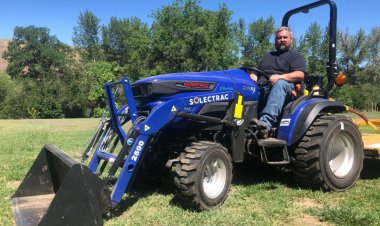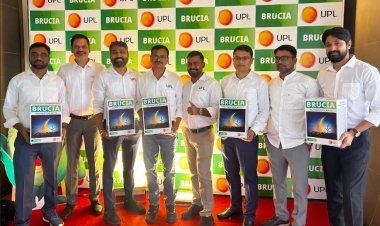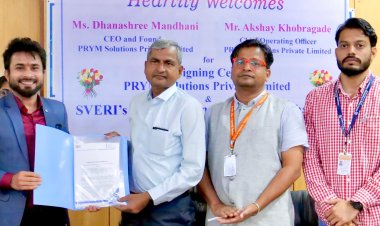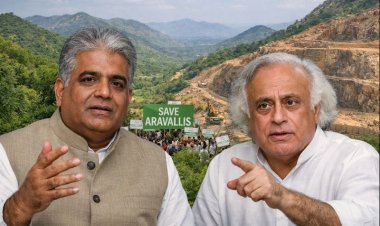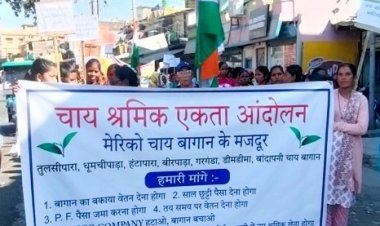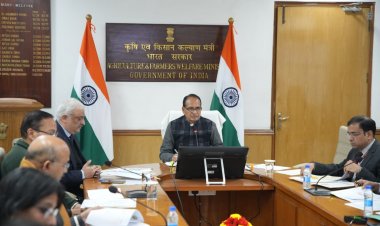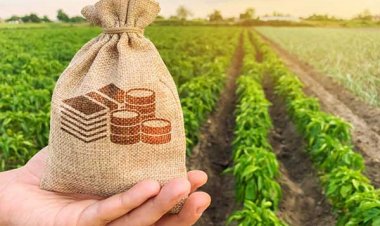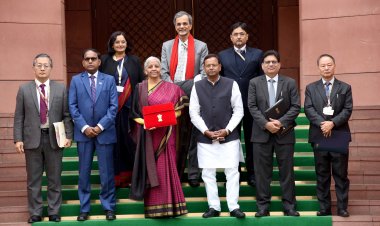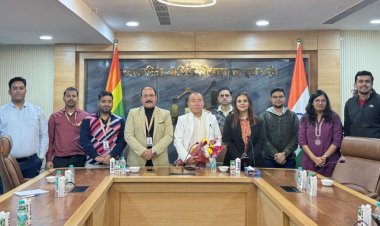We need to make the youth “technology agents”: RS Paroda
The second session of the Rural Voice Agriculture Conclave and NEDAC Awards 2021 had “Agriculture and Technology” as its topic. The participants were eminent personalities: Dr RS Paroda, Chairman, TAAS and former DG, ICAR; Dr Trilochan Mohapatra, DG, ICAR; and Harsh Kumar Bhanwala, former Nabard chairman. Dr Biswajit Dhar from the JNU was the moderator.
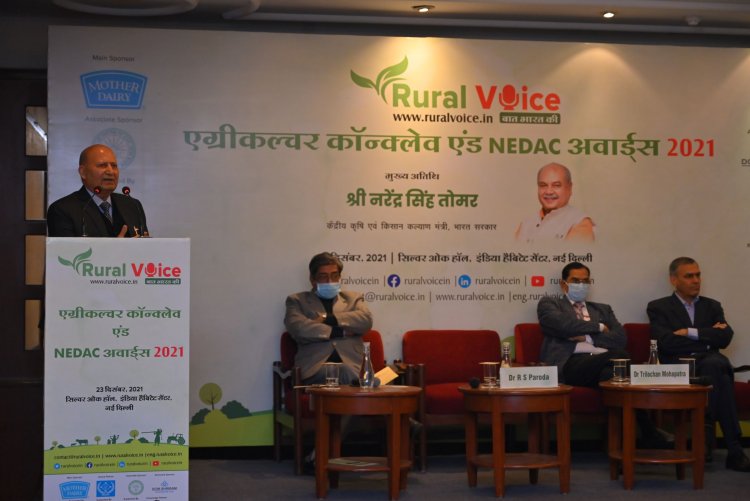
Technology has a big role to play in the progress of civilization. And agriculture cannot be an exception. The judicious use of technology has made us come out of difficult times. And it will solve many more problems in the future. The session on “Agriculture and Technology” was full of insights at the Rural Voice Agriculture Conclave and NEDAC Awards 2021 in New Delhi on December 23.
Dr RS Paroda, the Founder Chairman, Trust for Advancement of Agricultural Sciences (TAAS) and former Director General (DG), Indian Council of Agricultural Research (ICAR), began with congratulating Harvir Singh for the commendable job his venture Rural Voice was doing in giving a platform to “rural voice”.
The farmers, felt Dr Paroda, were keen to seek agricultural knowledge. Technology that can bring about changes is what matters. Paroda cited as an example how a mechanic from his village downloaded an app on his phone with the help of which he could operate his tube well right from the place where he was speaking. “Such innovation is required as can reduce the farmers’ costs and increase their incomes,” he said.
It is technology that has brought about all sorts of changes, be it Green Revolution, White Revolution, Blue Revolution or Rainbow Revolution, said Paroda. He referred to how Norman Borlaug and MS Swaminathan would say that these technologies could not have been available in absence of good institutions and human resources.
The Government of India, Paroda said, deserved all credit for creating the requisite infrastructure and making efficient policies. For example, 18,000 tonnes of wheat seeds were procured from Mexico and delivered to the farmers, which was a historic achievement.
Today we need to go beyond production, said Paroda. “We have to focus on post-harvest management, value addition and marketing.” Besides, in production, we need to benefit from key technologies like genome-editing. Bio-fertilizers and bio-pesticides need to be produced on a large scale.
Paroda felt we need to make the youth “technology agents” who can educate the farmers and manage the required logistics. Besides, the Parliament needs to push forward legislations like the Seed Bill and the Pesticides Bill.
“If the Prime Minister thinks of a 5-trillion dollar economy, one trillion dollar of it has to come from agriculture. And for this we have to think afresh and work with a new approach,” concluded Paroda.
Dr Trilochan Mohapatra, who is the current DG, ICAR, said, “It is technology that has contributed to our farm production and exports.” He told the audience how ICAR aimed to deliver the technological know-how to as many farmers as possible.
Mohapatra said our foodgrain production had increased 6.5 times since Independence. We not only have enough for a population of 1.3 billion but also export large amounts. The agricultural exports have reached Rs 41 billion. During the Covid-19 pandemic, when all other sectors of the economy registered drastic falls, agriculture was the only sector that had a positive growth rate.
In order to explain how technology helps agriculture, Mohapatra gave the example of sugar production, which was 23-25 million tonnes (mt) 6-7 years ago. “We even had to import to meet our requirement. We then did systematic research and came up with the variety CO-0238. This led to an increase of 20 tonnes per hectare. The recovery rate of sugar also went up from 9-10 per cent to 12 per cent. Eventually, we have produced up to 32 mt of sugar. And we are now diverting some of the production towards bio-ethanol after meeting our sugar requirements.”
Mohapatra spoke about various other technological innovations — nano urea, drone technology, converting stubble into manure, saving water in irrigation, etc. He said that “precision agriculture” and “sustainable farming” had become the buzzwords. “We must not forget, however, that the farmers’ incomes need to be increased. And technology will have a big role to play in this,” he said.
The ICAR DG was also of the opinion that commercialization has to be borne in mind right from the beginning while making any innovation. Besides, technological research needs private investment and PPPs are, therefore, important.
Mohapatra made a significant conclusion that technology had not only to be “developed” but also “delivered” to the farmers so that they could utilize it and augment their incomes.
Harsh Kumar Bhanwala, former Nabard chairman, tried to prove the contribution of technology by comparing conventional banking to digital banking — how the scenario has changed from a full day being wasted for the farmer if he had to withdraw money to one where transactions are done within seconds at the click of a button in the UPI era.
Bhanwala talked about the Omnivore Impact report, which says that there has been a sizeable increase in the number of start-ups and venture capital support for these. These start-ups, said Bhanwala, range from helping with labour shortage to removing weeds. There are start-ups that help with issues like moisture content with the help of spectrometers from recent locations.
Besides, Bhanwala floated the idea of a “fund of funds” for agriculture like the one we have for Micro, Small and Medium Enterprises (MSMEs).
Bhanwala also made it clear that the advent of technology did not mean that the cooperatives and collectives would be bypassed. “Rather, there needs to be a collaboration with start-ups. And there is need for more start-ups whom the government should promote.”
Prof. Biswajit Dhar from JNU summed up the session on the following note: “Agriculture should be changed from a loss-making venture to a profit-making one with the help of technology.”



 Join the RuralVoice whatsapp group
Join the RuralVoice whatsapp group


















